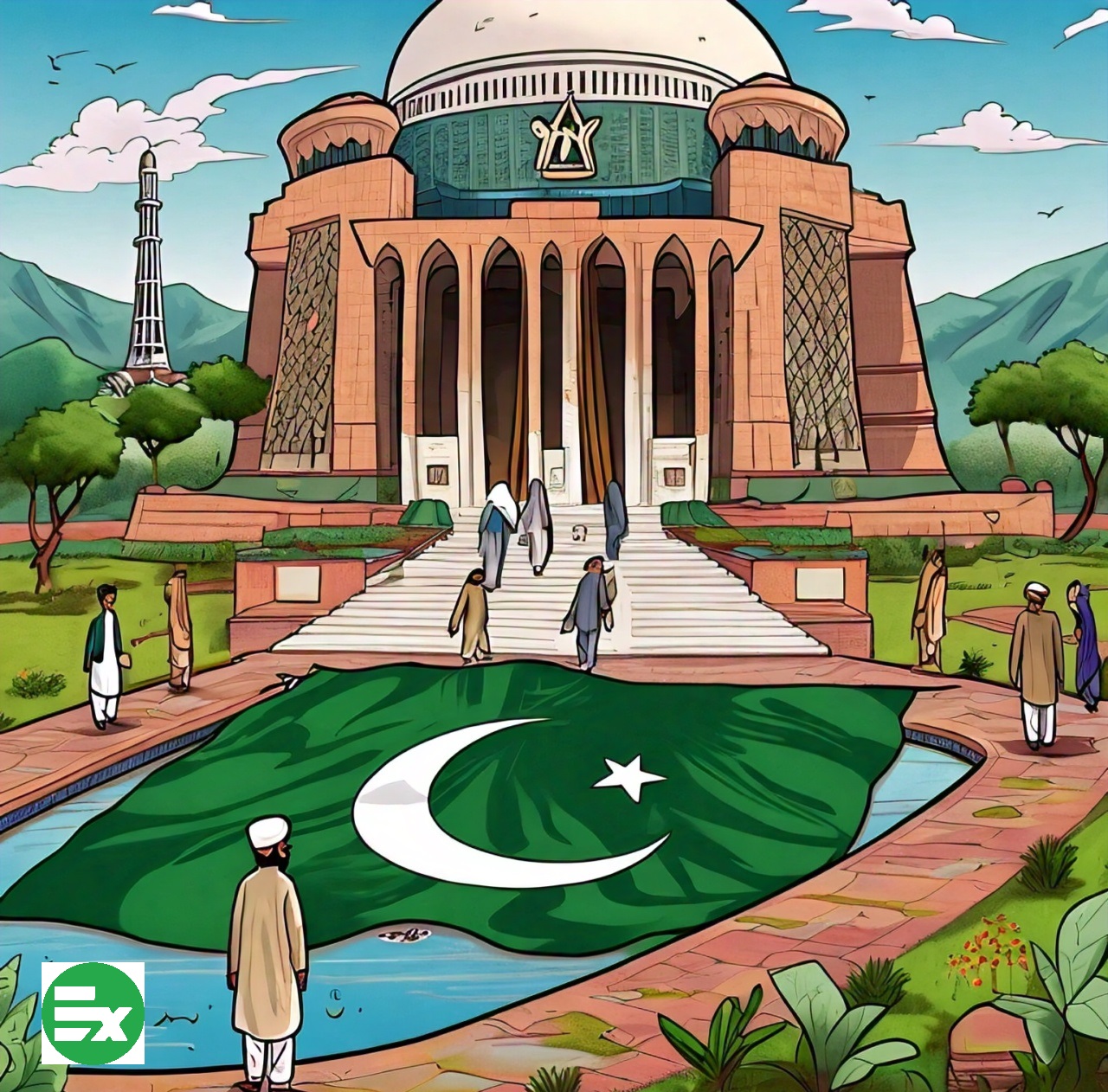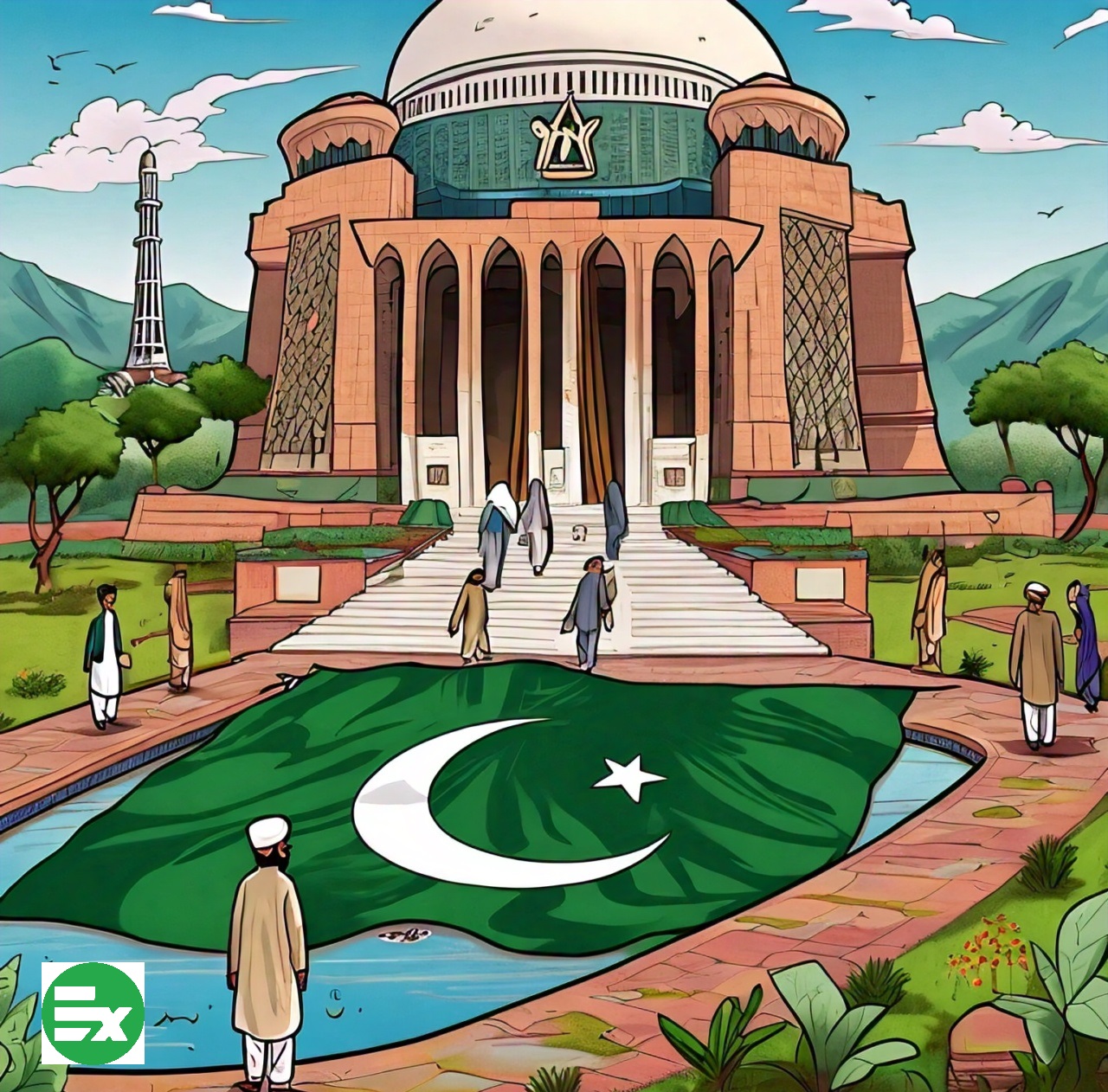
The Gulf Between Rhetoric and Reality Reflections on Pakistan's Governance

The biggest reason for Pakistan's problems is the contradiction between the words and actions of the ruling class. They say one thing and do another, and what they do, they don't tell the people about. So, if they preach honesty to the nation, do they themselves do everything honestly? If they teach the nation to speak the truth, do they themselves speak the truth? If they tell the people to follow the law, do they themselves follow the law? The rulers keep telling the people about the constitution, but do they themselves abide by it? They lecture the people on duty consciousness, but do they fulfill their own duties as rulers? They preach simplicity and austerity to the people, but do they implement it in their own government spending and lifestyle? Certainly not.
Let's forget about the personal expenses or lifestyles of the ruling class for a moment. If we just look at the way they govern and the expenses associated with it, it becomes clear that the lesson of simplicity is nothing but adding salt to wounds for the common man. If there's a need to save electricity, why don't the rulers set an example in this matter? Do they have electricity-saving campaigns in their homes or government offices? Have we ever seen any efforts to save electricity in the Senate, National Assembly, or provincial assemblies? Why does the ruling class always demand sacrifices from the common man? Why do they always make the common man feel like they must always save, while they themselves are indulging in extravagant spending?
Can the country's issues ever be solved with this double standard, this contradiction between words and actions? Certainly not. Until simplicity is not ingrained in the minds, there will be no real change. They think in English but speak in Urdu, they live in houses with hundreds of canals of land, they fight battles on behalf of those who don't have enough for two square meals a day, they represent those who don't even have access to a fan in scorching heat, who wear a piece of clothing once and can't afford new clothes even on Eid the following year.
I'm not saying that if the ruling class has a lot of wealth, they shouldn't make life easy, but as long as the residents of grand palaces, feudal lords' mansions, and residents of various cities in the country don't realize that their lavish lifestyles create a sense of deprivation among ordinary people, and the wealth they are accumulating needs to be distributed among the people, their role in this matter is like that of a thief who passes on the loot to the relevant person when a letter comes to him. Isn't it the fundamental responsibility of the rulers to leave behind the wealth accumulated from this country only for their children? Is there a need to return anything to the country or not?
Let me share an incident here. The story goes like this: Jawaharlal Nehru's father raised his son like a royal prince, gave him the upbringing of nobles, sent him to Cambridge University, and when he returned as a barrister to India, he gave him good clients in Allahabad. But Jawaharlal Nehru, the owner of a communist mindset, wanted to bring about equality in society through politics. The father explained a lot, but when all efforts failed, one day he stripped Jawaharlal Nehru of all his precious suits, shoes, and cigars from his wardrobe and distributed them among friends' children and gave him two pajamas made of khadi and three cotton kurtas and a handcrafted desi shoe, removed all the furniture from Jawaharlal Nehru's room, spread coarse cloth on the floor and gave him a simple meal, and ordered him to start serving prison food from today and closed the son's pocket for expenses. When Jawaharlal Nehru saw the condition of his room, he went to his father at night with a smile. Big Nehru was reading "War and Peace" by Tolstoy in the study at that time. The son asked, 'Father, are you upset with me?' Motilal Nehru raised his eyes from the book and answered in a soft voice, 'I will be the last person in the world to be upset with you, son.' Chhote Nehru asked again, 'Then why did you do such a big operation?' The father said to the son, 'Prince, you have chosen the path of prison, hunger, and humiliation, there is nothing in it but jail, hunger, and humiliation. I want you to develop the habit of all those things from today that are presented to you on this path. Second, it's because the poor have nothing but credibility, so they trust others with extreme caution. If you want to talk like an ordinary man, then you should also be an ordinary man yourself. If you want to talk to England's suit and Italy's shoes about the poor, then no one will trust you. I don't want the world to call my son a hypocrite. Therefore, wear the clothes of the poor from today and spend as much as the poor have in their pockets. Jawaharlal Nehru kissed his father's hand and then wore khadi clothes and desi shoes until he died and ate simple food like the poor. The biggest deficiency of our country is the lack of such leadership. The leadership in the whole world is generally from big families, they are highly educated, they also have a global exposure, and they are not hungry for money. But when these people come into politics, they bring the gift of simplicity and concern for the poor. They don't just talk about the common man; they also appear to be common people, but it's not like that in our country. We are drowning in the filthy politics. The three major political parties of the country do talk about the poor, but their leadership's lifestyle and personality don't match their words.
Those who live in bungalows and farmhouses of thousands of canals, who receive perks and protocols from around the world, who use a bulletproof car and helicopter like a street motorcycle, our rulers cannot be the leaders of a poor country. If you want to take leadership, take it from the poor people who live like ordinary citizens in five or seven marla houses. Like German Chancellor Angela, who wears only two or three suits and a single coat and completes her five-year term in power, but becomes the beloved of millions around the world with her character. I could have given better examples from Islamic history, but this example is for a specific purpose. I wish the rulers and the people learn a lesson from this."













